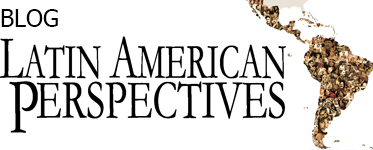by Steve Ellner
Posted by Venezuelanalysis.com
It seems just yesterday that Eliot Abrams declared the Trump administration was “working hard” to oust President Nicolas Maduro from office. Now Abrams (currently a senior fellow at the Council on Foreign Relations), along with the Biden administration, is urging the Venezuelan opposition to participate in the state and local elections slated for November 21. Washington’s change of tack, however, is a far cry from renouncing the right to intervene in Venezuela’s internal affairs.
Not surprisingly, Washington has prevailed on the rightist opposition led by self-proclaimed president Juan Guaidó and Leopoldo López to abandon their three-year policy of boycotting elections, which they claimed totally lacks legitimacy. Electoral participation is a hard pill for both politicians to swallow because it shatters the illusion nurtured by Washington that Guaidó is the rightful and existing president and that he is just days or weeks from occupying the presidential palace.
In the way of damage control López announced that he opposed participation in the November contests but that the rank and file of his and Guaidó’s Voluntad Popular party pressured him into accepting the new line. López, who represents an extreme position even within his party, was for the U.S. “our man in Caracas” until Guaidó’s self-proclamation in 2019. Recent examples of López’s extremism are his remark that the main business organization Fedecámaras “betrayed the country” by inviting Venezuelan vice president Delcy Rodríguez as guest of honor at its annual meeting and his attack on the European Union for legitimizing Maduro by agreeing to send electoral observers in November.
The rejection of Maduro’s legitimacy dates back to early 2015 when President Obama declared Venezuela an “extraordinary threat to U S national security.” The statement not only scared off a number of large US corporations which closed shop and left, but it set the stage for the Trump administration’s severe sanctions and activist diplomacy designed to intimidate corporations throughout the world into severing relations with Venezuela. Francisco Rodríguez, Venezuelan economist formerly with Bank of America and a leading opposition advisor, extrapolated that had it not been for the sanctions oil production in the high-yielding Orinoco River region would have been three to five times greater this year.
In the November elections, Voluntad Popular will run candidates on the ticket of the Democratic Roundtable Unity (MUD) alliance which groups the major parties of the opposition. Unlike the MUD, a host of smaller moderate parties of the opposition are running candidates which have criticized the sanctions and recognize Maduro’s legitimacy. The opposition’s fragmentation enhances the possibility that Maduro’s United Socialist Party (PSUV) and its allies will achieve a plurality at the polls. The polling firm Hinterlaces puts the PSUV’s popularity at 34% compared to 13% for Voluntad Popular and the rest of the opposition combined. In contrast, opposition pollster Luis Vicente León claims that the PSUV is at 20 to 25%. In spite of the PSUV’s lead, the Nicaragua phenomenon of 1990, when Nicaraguans voted the Sandinistas out of office out of fear of continued U.S.-promoted violence and economic sanctions, may factor into November’s results to the opposition’s benefit.



